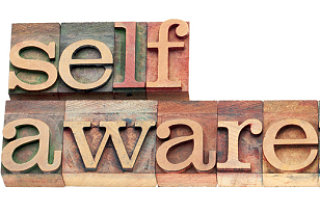The Principles of Good Leadership for Remote Teams
Guest: KELLY VAUGHN – THE TAPROOM AGENCY
As more and more finance teams recognize the joint employee/employer benefits in remote work how should finance heads adjust their leadership style?
In this episode of The Human Behind the Screen Shauna explores this questions with Kelly Vaughn, an entrepreneur, developer, and Shopify expert and partner.
A full Remote Company

For somebody who has worked as a freelancer her whole life; starting at the very young age of 14, Kelly has collected enough experience to know she seriously prefers to work remotely and that she has the knowledge to lead a remote team.
As an early leader of remote teams Kelly learned which qualities to look for in her employees. “If they already have experience working remotely or if they have experience freelancing, it’s a good indicator they’re capable and will do well in a remote environment. I think the other thing…is their communication style. I look for good communicators in person, on the phone and via email when I’m going through the interview process”.
Leaders that Helps You to Grow
Thanks to all of those years working as a freelancer and remote worker, Kelly has collected a great set of skills, as a worker and as a leader. She is also a trained therapist, which gives her another set of skills, to use in her business. As Kelly said, her leadership style is very hands-off, she likes to empower her team, so they feel that they can work perfectly without her micromanaging them. “I hire them because I know that they’re going to be a great remote worker and if I find that they’re not going to be a great remote worker, I know that I do need to replace them”.
As a leader Kelly believes its important she creates the communication channels with her team and makes herself available for her team as much as possible. She respects time zone differences and seeks ways to make them work in the team’s favor.
Kelly is aware that not everyone feels comfortable working exclusively from home. She reimburses them if they choose to work from a co-working space. She also is willing to pay for online courses that allow her team to grow and acquire new skills. “I want to provide them the resources that will help them grow personally and professionally. I could not survive without them, and I need them to feel like they’re not only a part of the company but also growing themselves”
Transparency within the Company
When it comes to a company with a fully remote team, transparency is a must to create a connection and improve team interactions. Kelly shares with us how she contributes as a leader to create that transparency. “I try to keep a lot of the conversations that we have open to everybody… on the team… if anybody can jump into a conversation, it doesn’t matter where you’re faced, as long as they feel comfortable joining in on the conversation, then I’ve done my job. Fostering those kinds of conversations and being the one again to start those conversations, and making people feel comfortable to jump in on the conversation even if we’re not seeing each other face to face all the time” Kelly said.
Kelly is aware of the importance of interpersonal relationships and how that can affect a business, to make it successful or to delay the process of growth of a company. “Especially when you’re growing a team… as you’re delegating, it comes to the point where your team is what’s going to make your business successful. It’s not you”, Kelly said.
Co-Working Spaces for the Extrovert Remote Workers

For some remote workers, the opportunity to work from home is a dream come true. They can find the perfect balance between work and personal life, find time to run errands or doing some recreational activities, having the perfect excuse to leave the house just when necessary.
But for others, not having the chance of speak with another human in person, or feeling the motivation from watching somebody else work, can be a real nightmare. That is the case for Kelly, who refers to herself as an extrovert and recognizes sometimes she needs to work from an office environment. Co-working space has helped her with that. “I love talking to people, I love hearing people’s stories, and when you’re working remotely, especially if you’re freelancing, you don’t have other team members who get what you’re doing. But working out of this co-working space has allowed me to form these friendships with other people who are working out there, who are working for completely different companies in completely different areas, but I can walk in, and they’ll be like, Oh, how did that event go that you attended last week? They remember, and this is like having your local co-workers in that case, even if you’re never working on the same thing”
This shows us the importance of understanding and recognizing our needs and needs of our employees and how to fill them.
The Entrepreneurial Mindset
We tend to forget, that when it comes to working remotely or as a freelancer, we are our own company or product to sell and that we need to be our publisher or public relations agent. “There is a common misconception that unless you’re running a business, you’re not an entrepreneur, you don’t have the entrepreneurial mindset, and the truth is, even if you’re working for a company, you’re representing yourself every day, you’re having these conversations with people you are interviewing for jobs, you’re selling yourself. I mean, there are so many things that you’re doing in your day to day life, that are exactly what the entrepreneurial mindset is, even if you’re not physically running your own business. So being able to do what we can to promote those positive skills that just grow those skills within The Taproom for our employees is important” Kelly shared with us.
Kelly let us know that she promotes that kind of mindset within her team and that she is very proud of their success. ” As you’re growing your team, and they’re getting better, there’s always that chance that you’re going to lose that employee… they’re going to decide to start their own business or they’re going to go elsewhere. And even if you lose them, you’ve done an amazing thing by being able to help them get to that point where they feel like they can take that next big step in their career. So it’s a win for them. It’s a win for you honestly, even if it’s a loss of an employee.”
This article is from an interview Shauna conducted on her podcast, The Human Behind the Screen.
Identify your path to CFO success by taking our CFO Readiness Assessmentᵀᴹ.
Become a Member today and get 30% off on-demand courses and tools!
For the most up to date and relevant accounting, finance, treasury and leadership headlines all in one place subscribe to The Balanced Digest.
Follow us on Linkedin!
